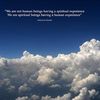Færsluflokkur: Trúmál og siðferði
2.9.2007 | 02:05
Hvað er biblian
What is the Bible?by Paramahamsa Prajñanananda |
|
Why should you read the Bible? Those who have read the Bible have rarely understood it. It is very difficult to understand its real meaning. Origin and StructureThe Bible comes from the Greek word biblion, which means "books". This root is used to form many other words—"bibliotek" (library) in German, "bibliography," "bibliophile," etc. Controversial PointsAfter this introduction to the Bible, I will now discuss a few controversial points. The Body Is Dust Created by GodThere was complete silence in the room. As no one was saying anything, I asked "Would you like to hear what I have understood?" They agreed. I explained what was the meaning of "dust"—fine particles of soil. Soil means what? The earth element. Inside the earth there is water. Inside the earth there is fire. Inside the earth there is air. This earth or dust itself remains in the vacuum, space. Thus there are five elements. God created man—meaning human beings—out of these five elements. And these five elements are remaining in the whole body, each one being dominant in a particular chakra—earth in the bottom center, water in the sex center, fire in the navel center, air in the heart center, and vacuum in the throat center. God created man from dust. This body is made of dust. I do not know the Jewish custom of burying the dead, but I have seen how the Christian priest sprinkles a little soil over the coffin and says "Dust to dust, ashes to ashes…" because this body is made of dust and it is going back to dust. What is the value of your body? Dust. Dust means "insignificant." Do you like dust? If there is dust in your house, you remove it with your vacuum cleaner. Although we do not like dust, we like this dust-body because it comes from the hand of God. Although it is made of dust and insignificant, it is beautiful, because God has applied his hand to every part of the body. God made man from dust, and man is mortal. "Man" is to be understood as "human being." "Man is mortal" does not mean that woman is immortal! God created you and me, God has no partiality. Son Means SoulThen why does the Bible speak of "the sons of God and daughters of man?" "Son" means the Soul. We all are the sons of God, the Soul. It is because of our identification with the body that we speak of males or females. When we identify ourselves with Spirit, then we are neither male nor female. What are the daughters of man? "Daughters" means the desires. Daughters means that which was created from yourself, your children. When desires come to you, any type of desire—desire for money, desire for sex, desire for food, desire for emotion, anger, any desire—those are your daughters. You have created your own children. So "the son of God wanted to marry the daughter of man" means that human beings want to be with their desires constantly. We want to live with ideas, with emotion, with moods, with expectations, with desires, with people: that is to marry—to be united, to live with desires. People live with desires. The Body is ParadiseWhen God created us, God kept us in paradise. This body is paradise. And God said that if you eat the fruit of this tree, which is in the middle, then you will die. But the snake said, "No you will not die, you will get knowledge." They ate the fruit, and they did not die. But what type of knowledge did they get? They saw that they were naked—his means that they became body-conscious. Please Read the BibleIn the Bible it is written that God was not happy that man’s lifespan was only 120 years, that man is mortal. Conversely, God will be happy if he perceives that he is immortal, that the power of God is all—that is the greatest joy of God. When the Father is happy the child will be happy. when the child is happy the Father will be happy. This is samadhi. This is the state of self-realization. This is the result of meditation. This is the result of Kriya practice. This is the teaching of the Bible. The Bible is really a wonderful book. I have read it so many times, I cannot count anymore. Next to the Gita which I have many hundred times, it is the book I have read the most often. Every day I find some truth in it, meaning that it is a revelation of truth. Please read the Bible. Please come to meditation classes. Please practice the technique. Then your life will be beautiful.
Sahaja means easy, karma means action—easy action. What is the easiest action within you? Breath. In your body there is the heart beat, circulation, digestion, and many other biological processes. Among them, the easiest action is breathing.
| |
© Copyright 1995-2007 Kriya Yoga Institute
1.9.2007 | 20:53
(kóraninn) veit einhver hvar ég get keypt bókina
1.9.2007 | 15:27
Hvað er biblian
What is the Bible?by Paramahamsa Prajñanananda |
|
Why should you read the Bible? Those who have read the Bible have rarely understood it. It is very difficult to understand its real meaning. Origin and StructureThe Bible comes from the Greek word biblion, which means "books". This root is used to form many other words—"bibliotek" (library) in German, "bibliography," "bibliophile," etc. Controversial PointsAfter this introduction to the Bible, I will now discuss a few controversial points. The Body Is Dust Created by GodThere was complete silence in the room. As no one was saying anything, I asked "Would you like to hear what I have understood?" They agreed. I explained what was the meaning of "dust"—fine particles of soil. Soil means what? The earth element. Inside the earth there is water. Inside the earth there is fire. Inside the earth there is air. This earth or dust itself remains in the vacuum, space. Thus there are five elements. God created man—meaning human beings—out of these five elements. And these five elements are remaining in the whole body, each one being dominant in a particular chakra—earth in the bottom center, water in the sex center, fire in the navel center, air in the heart center, and vacuum in the throat center. God created man from dust. This body is made of dust. I do not know the Jewish custom of burying the dead, but I have seen how the Christian priest sprinkles a little soil over the coffin and says "Dust to dust, ashes to ashes…" because this body is made of dust and it is going back to dust. What is the value of your body? Dust. Dust means "insignificant." Do you like dust? If there is dust in your house, you remove it with your vacuum cleaner. Although we do not like dust, we like this dust-body because it comes from the hand of God. Although it is made of dust and insignificant, it is beautiful, because God has applied his hand to every part of the body. God made man from dust, and man is mortal. "Man" is to be understood as "human being." "Man is mortal" does not mean that woman is immortal! God created you and me, God has no partiality. Son Means SoulThen why does the Bible speak of "the sons of God and daughters of man?" "Son" means the Soul. We all are the sons of God, the Soul. It is because of our identification with the body that we speak of males or females. When we identify ourselves with Spirit, then we are neither male nor female. What are the daughters of man? "Daughters" means the desires. Daughters means that which was created from yourself, your children. When desires come to you, any type of desire—desire for money, desire for sex, desire for food, desire for emotion, anger, any desire—those are your daughters. You have created your own children. So "the son of God wanted to marry the daughter of man" means that human beings want to be with their desires constantly. We want to live with ideas, with emotion, with moods, with expectations, with desires, with people: that is to marry—to be united, to live with desires. People live with desires. The Body is ParadiseWhen God created us, God kept us in paradise. This body is paradise. And God said that if you eat the fruit of this tree, which is in the middle, then you will die. But the snake said, "No you will not die, you will get knowledge." They ate the fruit, and they did not die. But what type of knowledge did they get? They saw that they were naked—his means that they became body-conscious. Please Read the BibleIn the Bible it is written that God was not happy that man’s lifespan was only 120 years, that man is mortal. Conversely, God will be happy if he perceives that he is immortal, that the power of God is all—that is the greatest joy of God. When the Father is happy the child will be happy. when the child is happy the Father will be happy. This is samadhi. This is the state of self-realization. This is the result of meditation. This is the result of Kriya practice. This is the teaching of the Bible. The Bible is really a wonderful book. I have read it so many times, I cannot count anymore. Next to the Gita which I have many hundred times, it is the book I have read the most often. Every day I find some truth in it, meaning that it is a revelation of truth. Please read the Bible. Please come to meditation classes. Please practice the technique. Then your life will be beautiful.
Sahaja means easy, karma means action—easy action. What is the easiest action within you? Breath. In your body there is the heart beat, circulation, digestion, and many other biological processes. Among them, the easiest action is breathing. | |
Trúmál og siðferði | Breytt 2.9.2007 kl. 02:03 | Slóð | Facebook | Athugasemdir (0)
1.9.2007 | 14:39
surningar og svör
| |||
Village des Pruniers - Làng Mai - Green Mountain Center - Deer Park Monastery - Lộc Uyển Email: PVlistening@plumvill.net- Meyrac Loubès Bernac 47120 France
|
29.8.2007 | 15:58
Plumvillage ég þangað
ohhhhh hvað ég væri til í að fara þangað 20 þúsund kall vikan inifalinn matur, kennsla allann daginn ,og gisting það er ekki mikið ég myndi nú samt vilja vera þar í 3 vikur núna er bara að byrja að safna . stofnandinn er Thich Nhat Hanh er búddamunkur frá víetnam .Hann lifir í úlegð í litlu samfélagi í frakklandi.Plómuþorpi,
. stofnandinn er Thich Nhat Hanh er búddamunkur frá víetnam .Hann lifir í úlegð í litlu samfélagi í frakklandi.Plómuþorpi,
(plumvillage.org ) þar getur fólk fengið að koma og læra af honum og þeim sem eru þar munkum og nunnum .hvernig á að lifa í núinu ég las grein um hann þar talaði hann um að þegar hann kynnti sér guðsspjöllin þá tók hann eftir því að jesús sagði fólki að guðsríki væri her og nú ,en ekki að þessu lífi loknu.þið þurfið ekki að taka nema eitt skref til að komast í guðsríki,land hreinleikans .Bara eitt skref.þegar þið heyrið í bjöllunni (bjallan sem þeir nota sem búa í plumvillage)eða þegar þið heyrið í fugli eða þegar þið komið auga á stjörnu eða horfið í barnsaugu þa getið þið samstundis komist í guðsríki .En til þess þarf vakandi vitund,það útheimtir aðgát að sjá stjörnurnar ,að upplifa blóm eða skynja nærveru barns.Þetta fallega blóm er búið að vera þarna svo dögum skiptir en návist þess er okkur ekki raunverulegt af því að hugur okkar og hjarta er ekki hjá þvi.þetta fallega blóm heyrir guðsríki til,landi hreinleikans.við þurfum ekki annað en að virða það fyrir okkur með athygli til að skynja návist þess.Þegar þið sjáið það í dýrð sinni þá eruð þið þegar í guðsríki .Jesú er lýst sem friðarfurstanum.'A síðustu kvöldmáltíðinni braut hann brauðið og deildi því með lærisveinum sínum og sagði:Hér er likami minn.Njótið hans.Allajafna neytum við daglegs brauðs eftirtektarlaust,og hugsum um ótal margt á meðan.Þegar við borðum brauðið þá ættum við ekki að hugsa um neitt annað .En sú er ekki raunin.Við erum ekki með hugann við það sem við gerum þá stundina.Af þeim sökum förum við á mis við lífið og við förum á mis við friðinn.Lífið sé með yður,friður sé með yður_það er einungis mögulegt þegar við erum í andartakinu og meðvituð um það sem á sér stað í andartakinu.þetta er hugleiðsla í hnotskurn.
Að ástunda hugleiðslu er að veita athygli,vera meðvitaður um það sem gerist í andartakinu.Þetta fallega blóm er hér og nú á þessu augnabliki.Það er boðberi frá ríki friðarins.Og brauðið,sem við neytum daglega,er fulltrúi alheimsinsÞað er umdursamlegur erindreki þessa ríkis.En dags daglega borðum við brauðið án þess að veita því athygli.Þess í stað svelgjum við í okkur áhyggur okkar,afbrýði okkar,ótta okkar,reiði okkar,en við borðum ekki brauðið okkar.en jesú vildi að lærisveinarnir borðuðu brauðið sem hann bauð þeim. Hann notaði mjög sterkt myndmál til að vekja þá. Vinir mínir,borðið þetta brauð það er lífið.Það er friðurinn,það er Guðsríki Tich Nhat Hanhn
Trúmál og siðferði | Breytt s.d. kl. 19:27 | Slóð | Facebook | Athugasemdir (2)
29.8.2007 | 14:47
stóð ekki þú skalt ekki dæma í bibliunni hommar eru guðsbörn líka
 Hann sagði að í bibliunni væri talað um að það væri synd .'Eg hef reyndar aldrey séð það í bibliunni og held nú frekar að jesu hafi átt við barnaníðinga frekar en homma mig minnir að einhver hafi sagt mér að það hafi staðið þú skalt ekki girnast drengi man það samt ekki orðrett ég væri til í að vita hvað var skrifað orðrétt en vááá ég held að flestir hafi syndgað einhverntimann á ævinni. stolið ,logið,drygt hór ,langað í eitthvað af því sem náungi sinn á :) logið upp á aðra og margir heiðra ekki föður sína og móður á þá að henda þeim í sjóinn í texas ætli það endi ekki með því bara
Hann sagði að í bibliunni væri talað um að það væri synd .'Eg hef reyndar aldrey séð það í bibliunni og held nú frekar að jesu hafi átt við barnaníðinga frekar en homma mig minnir að einhver hafi sagt mér að það hafi staðið þú skalt ekki girnast drengi man það samt ekki orðrett ég væri til í að vita hvað var skrifað orðrétt en vááá ég held að flestir hafi syndgað einhverntimann á ævinni. stolið ,logið,drygt hór ,langað í eitthvað af því sem náungi sinn á :) logið upp á aðra og margir heiðra ekki föður sína og móður á þá að henda þeim í sjóinn í texas ætli það endi ekki með því bara
Trúmál og siðferði | Breytt s.d. kl. 19:29 | Slóð | Facebook | Athugasemdir (1)
27.8.2007 | 19:15
jesús sagði
26.8.2007 | 09:05
vanliðan af minni hugleiðsu
ég finn svakalega fyrir þvi hvað mér fer að líða illa ef ég sleppi einum degi eða hugleiði lítið núna er mér farið að líða aftur illa eins og mér leið ´ður en ég byrjaði mér hefur liðið svo vel undanfarið þangað til siðustu daga ég verð aðtaka mig á ég finn að hugurinn er farinn á fullt ég má ekki gleyma mér svona verð að finna mér kennara svo ég geti farið að læra krijajoga sem fyrst hlakka til :)
Trúmál og siðferði | Breytt s.d. kl. 09:13 | Slóð | Facebook | Athugasemdir (2)
25.8.2007 | 13:29
bond
11
Jesus and John the Baptist
10
by Terry McGilloway
the difference between a statement of
truth and the pronouncement of a fact.
“A just and truthful action always results
in good, whereas your statement of a fact,
which resulted in great harm to yourself and
to that man, was far from ultimate truth.
“Why didn’t you point in the wrong
direction in the forest and save yourself from
harm, and also save the man’s life?
“Even if you had committed the sin of
uttering a falsehood, that would have been
less sinful than the horrible sin of being an
instrument in the murder of an innocent man.
“By your silence, you let him think that
you would protect him, and deprived him of
the opportunity of seeking another hiding
place unknown to you. Then, to save yourself,
you betrayed him.”
Jama continued: “Honored saint, know
that a truthful action always brings good
results, and is different from a statement of a
fact which may produce good or evil.
Always give preference to an action that
results in good.
“To say, ‘Hey, Mr. Lame Man,’ or, ‘Hey,
Mr. Blind Man,’ to a lame man or a blind
man may be a statement of a fact, but it
would be untruthful because not conducive
to any good.
“To say: ‘Hello, Perfect One,’ or ‘Hello,
IN AUTOBIOGRAPHY of a Yogi andother writings, Paramhansa Yogananda
reveals the identity of Jesus Christ in a past
life, and also of Jesus’ guru from that life. He
discloses how Jesus met his guru again in his
life as Jesus, but under unusual circumstances
in a kind of role reversal!
Yogananda tells us that in their past
lives, John the Baptist was the great
prophet Elijah and Jesus was his foremost
disciple, Elisha. He writes that by the time
of their respective incarnations as Jesus and
John, Jesus had attained Self-realization
whereas John did so only at the end of
that lifetime.
A lesson in divine fiendship
The lesson Yogananda shares is one of
divine friendship:
how the
disciple and
guru remain
in an eternal
bond of soul
helping soul.
This deeper
understanding
of Jesus’ life makes it clear that the Bible
itself discloses that the doctrine of reincarnation
was widely accepted by the Jewish
people of ancient times, and by Jesus as well.
Elijah and Elisha in the Old Testament
The explanation Yogananda gives is not
as difficult to discern from the Bible as it
might seem at first. Let us go back in time
through the pages of the Bible to Kings II,
Chapter 2.
It is a brief chapter, and we read here that
when Elijah the prophet became aware that
he was soon to leave his body, he offered
his disciple, Elisha, a boon, saying, in
effect, “Ask what you want of me before I
leave you.”
Elisha’s response shows the intensity of
his spiritual quest, for without missing a
beat, he responds, one imagines rather
eagerly, “Let a double portion of thy spirit
be upon me!”
The Guru grants a boon
Elijah withdraws into silence seeking
the divine sanction necessary to grant such
a request.
Receiving it, Elijah sets one condition:
“Thou hast asked a hard thing: nevertheless,
if thou see me when
I am taken from
thee, it shall be so
unto thee; but if not,
it shall not be so.”
(Thereafter Elisha
doesn’t let his guru
out of his sight!)
When Elijah leaves his body, the Bible
says that Elisha then took up Elijah’s “mantle,”
which Yogananda explains was “his
glory and his spiritual wealth.”
Soon thereafter, when the rest of Elijah’s
disciples saw Elisha, they could see that “the
spirit of Elijah doth rest on Elisha.” 1
“I will send you Elijah”
Let us now move forward in time and in
scripture to the closing words of the Old
Testament by the prophet Malachi.
Strong Man,’ or ‘Hello, Man of Spiritual
Vision’ may not be statements of fact, but
they are wholesome in their effect.
Therefore, they are the truth.
“At the same time, remember that it is
not good to indulge in cheap lies. Suppose I
secretly saw you meditating in your room
and knocked on your door and inquired,
‘Mr. Saint, what were you doing?’
“If you replied: ‘I was eating bananas,’
you would have sacrificed my trust by lying
to be modest. If you had answered my question
with: ‘Well, I was just a little busy,’ I
couldn’t accuse you of lying nor could I
blame you for that evasion.
“Honored saint, one should avoid cheap
prevarication for by this habit you lose the
trust of everyone. One may distort facts
only when it is a question of life and death,
and an unjustly accused person can be saved.
“One should develop the habit of speaking
the truth without unnecessarily advertising
all one’s secrets. For if you tell your
weaknesses to false friends, they will poke
fun at you whenever the occasion arises.”
Concluding, the great Jama said, “Avoid
repeating unpleasant facts. Always speak
and act in a way that will bring lasting happiness
to yourself and others.”
from the Praecepta Lessons, 1935
The Eternal Bond of Guru and Disciple
Far right, Yogananda at age 16.
In their past lives, John the Baptist
was the great prophet Elijah and Jesus
was his foremost disciple, Elisha.
Trúmál og siðferði | Breytt s.d. kl. 14:21 | Slóð | Facebook | Athugasemdir (0)


 trúrleg menntun
trúrleg menntun
 agny
agny
 malacai
malacai
 alheimurinn
alheimurinn
 beggabjuti
beggabjuti
 brjann
brjann
 brandarar
brandarar
 austurlandaegill
austurlandaegill
 saxi
saxi
 ellyarmanns
ellyarmanns
 ellahelga
ellahelga
 erla1001
erla1001
 erna-h
erna-h
 kamilla
kamilla
 finder
finder
 gilsneggerz
gilsneggerz
 gudmundurhelgi
gudmundurhelgi
 zeriaph
zeriaph
 gtg
gtg
 heidistrand
heidistrand
 heidihelga
heidihelga
 heringi
heringi
 jensgud
jensgud
 enoch
enoch
 jonhjorleifur
jonhjorleifur
 prakkarinn
prakkarinn
 angel77
angel77
 kallimatt
kallimatt
 kreppu
kreppu
 krist
krist
 lauola
lauola
 leifurl
leifurl
 vonin
vonin
 larusg
larusg
 ludvik
ludvik
 mofi
mofi
 perlaoghvolparnir
perlaoghvolparnir
 ragganagli
ragganagli
 ruth777
ruth777
 lovelikeblood
lovelikeblood
 straitjacket
straitjacket
 scorpio
scorpio
 svavaralfred
svavaralfred
 laufabraud
laufabraud
 josira
josira
 asdisran
asdisran
 poppoli
poppoli
 aronsky
aronsky





